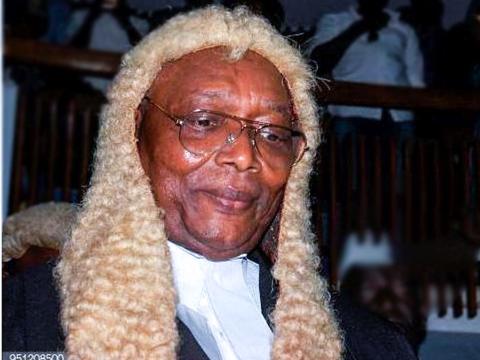By Saio Marrah
Sierra Leone’s Speaker of Parliament, Dr. Abass Bundu, has said at the regional meeting of the Africa-Middle East Parliamentary Day that the country’s Parliament has actualised most of the eight commitments of National Action Plan 3 (NAP3) of the Open Government Partnership (OGP).
Bundu informed participants in Marrakesh, Morocco last week that though the implementation of NAP3 was “seriously dogged ”by the insurgence of COVID-19, which he said had negative impact on partners and the economy of Sierra Leone,yet incremental progress was achieved in its implementation.
He said at the three day ceremony that those achievements were actualised due to “sustained political support for OGP” and “stronger collaboration and coordination with CSOs,” he said.
Out of the eight commitments, four were substantially implemented and they are access to information, gender, and open parliament, records and archives management.
He however acknowledged that three of the commitments received limited implementation around access to justice, education, and beneficial ownership and that the only exemption was the commitment relating to tax exemption.
In the implementation of NAP 3, he said government was able to develop a comprehensive duty waiver and tax exemption policy through the Ministry of Finance and the National Revenue Authority.
The speaker said that policy makes provision for six monthly publications of tax exemptions.
According to him, within the two years 2019 to 2021 of their implementation, Sierra Leone Parliament enacted an amendment by expunging the infamous Criminal Libel law from the 1965 Public Order Act.
The expunging of the archaic law that has now decriminalise libel, he said has opened up the civic space for promoting freedom of expression and allowed journalists to freely practice their trade.
Bundu pointed out that “in the latest MCC Scorecard, Sierra Leone is rated at 90% for freedom of information.”
He also went on to talk about how the parliament had abolished the death penalty and the passing of the Cyber Security and Crime Act into law.
The speaker also noted that the unrestricted broadcast by public and private radios and televisions of all debates in the plenary of Parliament since the advent of the fifth parliament in 2018 which he said “has helped to raise public awareness in no small measure of the valuable work of parliament and Parliamentarians.”
In protecting women, particularly the girl child, he said Parliament has passed a Sexual Offences Amendment Act by increasing the penalty for rape and sexual penetration of minors, from 15 years to life imprisonment.
The September 2022 Public Election Act, he said also makes provision for a strong gender-sensitive reform amongst other things.
The new law makes it mandatorily for a minimum of one female amongst every 3 nominees for parliamentary elections put forward by political parties.
This he said has “significantly increased women’s representation in Parliament from the present 16 female ordinary members (12%) to as many as 44 ordinary members (33%) after the 2023 general elections.”
Still on the gender empowerment, the speaker said there is a “seeming political will” from the presidency to appoint women to as much as 30% of appointive positions into governance. He said that will soon be enacted in a new Gender Equality and Women’s Empowerment Bill of 2022.
Dr. Bundu also highlighted the Customary Land Rights and the Land Commission Act, which he said is designed to empower and remove deep inequalities and discrimination against women in the ownership and control of land in their own rights.
In the area of Parliamentary openness, he said parliament commenced the implementation of the Parliament Open Day in 2019, which has developed a digital application to increase citizen’s interaction with the House through mobile phones.
He said it also “erected a ramp” to improve access to the physically-challenged, established a cross-party OGP Steering Committee to work together to support OGP initiatives and to raise public awareness of OGP among their constituents.
Bundu said those achievements ensured the Parliamentary Network Africa’s Open Parliament Index(OPI) ranked the Sierra Leone Parliament as the 3rd best among 13 West African Countries embracing Open Parliament in July 2022.
He said there has also been significant improvement in Sierra Leone’s budget credibility, oversight, and public accountability.
Among other things, he said the country continues to make significant progress in the fight against corruption, noting that the Millennium Challenge Cooperation (MCC) Scorecard has rated Sierra Leone highly.
Copyright (09/11/22)








